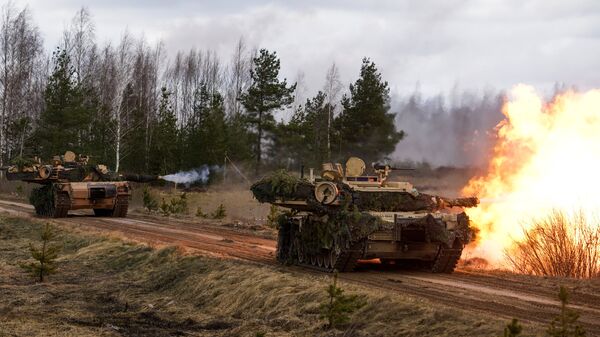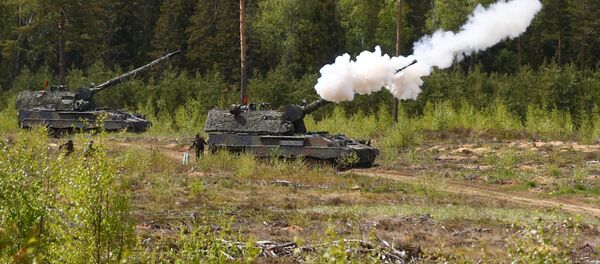Radio Sputnik discussed how achievable President Trump's demand with Fernand Kartheiser, Luxembourg Parliament member for the Alternative Democratic Reform Party.
Sputnik: While Trump has said he had managed to get NATO members to comply with his request to increase defense spending, other officials, including President Macron, have already refuted the claim. What does this contradiction mean for the alliance?
Fernand Kartheiser: Two percent is already not realistic and four percent is absolutely out of the question for the time being. You also have to see that among the eight nations that reached their goals, many are in the East of Europe and have a particular appreciation of contemporary Russia. Among all the others are basically two categories of countries. There’s one category that has an armament industry of its own such as Germany, France, the UK and also Italy. Those countries could still have a return on investment in their own countries if they would invest massively into armament. But most of the other countries have nearly no armament industries and it would be lost money. This is very difficult to tell the public, especially if there’s no enemy in western Europe. So people are wondering why should we spend so much money, and especially, who’s going to profit from it? And frankly the US is the most likely to profit most.
Sputnik: And of course despite the fact that, as you say, NATO is in trouble, Trump nonetheless pledged to remain committed to the alliance, although there was a threat there to leave it. What does this show us? Is there a deep division within NATO?
As we come to the core of that discussion, I think that we find out that many of these values are defended by Russia as well. So what we have nowadays is a number of local conflicts, especially in Ukraine and maybe in other regions, the post-Soviet conflicts that have to be resolved in order to be really able to come together. (When that happens, we’ll realize that all Westerners including maybe Russia, and Western civilization in the whole notion of the word, have to come together in order to see how the world can better develop in the direction of democracy and a free market.
Sputnik: Another thing that was mentioned at this NATO summit is that Macedonia has been invited to be in talks on accession to NATO. To what extent do you think Macedonia’s potential membership could actually worsen the geopolitical situation in the region?
Fernand Kartheiser: It’s not a big issue. The big issue here is that NATO has extended largely since the end of the Cold War. This was maybe a NATO effect but it was of course a weight on the relationship between the West and Russia. Macedonia doesn’t add much to that basic problem of NATO extension in the eyes of Russia. This is a problem and Macedonia isn’t going to change a lot.
READ MORE: Trump ‘Acting Like Tony Soprano’ By Demanding NATO Members ‘Pony Up’ on Spending
The basic and the most important issues are of course Ukraine and Syria. And in Ukraine I think that we have in the West also to come to grips with our own responsibility for the conflict. I think we are (unfair) if we only blame Russia in this conflict; if we don’t see what kind of problems exist in Kiev and what part of the responsibility that we are playing as the West in this conflict. So I think we should be honest and try to resolve the conflict, not only by blaming Russia, because this is not going to lead anywhere but just to see how it petrified the region and help altogether to give Ukraine new stability.
Sputnik: You mentioned issues of Syria and Ukraine and they of course will be discussed by President Vladimir Putin and Donald Trump at their upcoming meeting. The US President said that NATO allies endorsed this upcoming meeting with President Putin. What are Trump and NATO looking to gain from these talks and what do you think might be achieved during this meeting?
The views and opinions expressed in this article are solely those of the author and do not necessarily reflect those of Sputnik.




